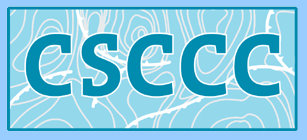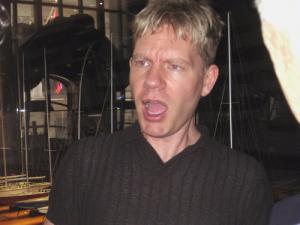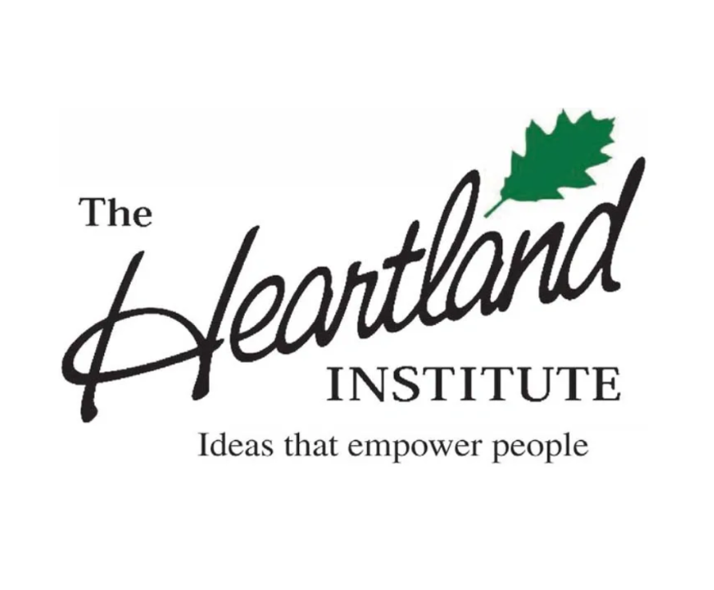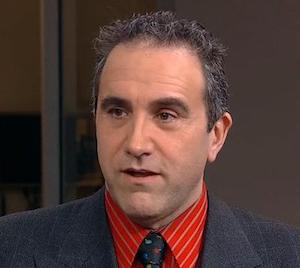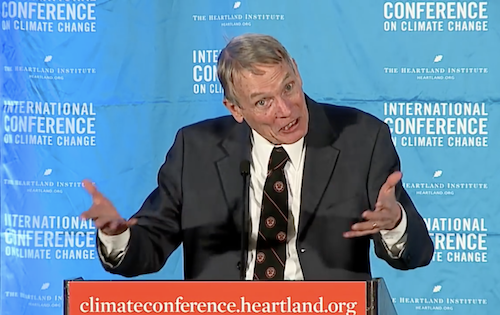Civil Society Coalition on Climate Change (CSCCC)
Background
The Civil Society Coalition on Climate Change (CSCCC) is a group of 60 non-profit organizations that “seeks to educate the public about the science and economics of climate change in an impartial manner.”1“About,” Civil Society Coalition on Climate Change. Archived April 3, 2014. Archive.is URL: http://archive.is/xQMVq
CSCCC published a “Civil Society Report on Climate Change” in 2007, shortly before the United Nations Framework Convention on Climate Change conference in Bali.2“Civil Society Report on Climate Change,” Civil Society Coalition on Climate Change, November 2007. Archived .pdf on file at DeSmog.
CSCCC experts have made media appearances, including Julian Morris’s 2007 feature on Larry King Live, and his televised debate in 2008 with IPCC head Rajendra Pachauri.3“CNN LARRY KING LIVE: Could Global Warming Kill Us” (Transcript), CNN.com, Aired January 31, 2007. Archived June 30, 2007. Archive.is URL: http://archive.is/B4g0
The group’s website and blog csccc.info was registered on November 5, 2007 by Domains By Proxy LLC. Domains By Proxy advertises itself as offering anonymity on the WHOIS registry, enabling the actual registrant of the website to conceal their identity.4“WHOIS information for csccc.info,” Whois.net. Accessed March 9, 2012.
CSCCC’s website no longer exists and it’s unclear as to whether the organization is still in operation.
Stance on Climate Change
May 2010
The CSCCC published an article on its website titled “Green tariffs make no sense,” which included the following quotes:
“International climate talks in Bonn last weekend were trying to salvage December’s failed Copenhagen summit. But some rich countries are imposing their own carbon limits anyway, and threatening to curb imports from poor countries that are not. We believe this will cripple the rich economies and harm the poor countries without doing much about emissions.”
“Industries in rich countries face punitive and expensive measures against climate change. Many fear they will be unable to compete with countries that do not have such emissions restrictions, and fear manufacturing and jobs will move away to them.”5Caroline Boin. Alec van Gelder. “Green tariffs make no sense,” Civil Society Coalition on Climate Change, May 11, 2010. Archived August 16, 2011. Archive.is URL: http://archive.is/89pce
November 2007
The CSCCC concluded the following in a report:
“The Civil Society Report on Climate Change concludes that such emissions caps [proposed in a post-Kyoto treaty] would be counterproductive: they would undermine economic development, harm the poor, and would be unlikely to address the problem of climate change in a meaningful way.”
“… adaptation is the best way to enable people to deal with a changing climate.”6“Civil Society Report Rejects ‘Kyoto 2’: says climate policy should focus on removing barriers to adaptation” (Press Release), Civil Society Coalition on Climate Change, November 27, 2007. Archived March 20, 2012. Archive.is URL: http://archive.is/wZ6UJ
The CSCCC summarized the following conclusions in a press release on its website:7“Civil Society Report on Climate Change,” Civil Society Coalition on Climate Change, December 3, 2007. Archived March 20, 2012. Archive.is URL: http://archive.is/Ye8qd
“Cutting greenhouse gas emissions in the coming two decades is not a cost-effective way to address climate change.”
“Deaths from climate related natural disasters have fallen dramatically since the 1920s, as a result of economic growth and technological development. With continued economic growth, the death rate is likely to continue to fall regardless of climate change. (The number of reported natural disasters has increased continuously since 1900 for various reasons, including population growth and improvements in communication; climate change is most likely not one of them.)”
“There is no evidence that climate change has caused an increase in disease. If the main causes of diseases such as diarrhoea and malaria are properly addressed, climate change will not increase their incidence.”
“Global restrictions on greenhouse gases would undermine the capacity of people in poor countries to address the problems they face today as well as in the future by retarding economic growth and general economic development.”
“Instead of pushing emissions restrictions and failed ‘aid’ policies, governments should focus on reducing barriers to economic growth and adaptation – e.g. removing trade barriers and decentralising management of water and land.”
Funding
Key Members of the CSCCC have received funding from oil and gas and tobacco companies. Some examples include:
- Cascade Policy Institute (received funds from Cato Institute)8Cato Institute 990 Form, pages 19 to 23, 2006. Archived .pdf on file at DeSmog.
- International Policy Network (ExxonMobil)9“International Policy Network,” DeSmog.
- John Locke Foundation (Funding from Koch and Philip Morris)10 “John Locke Foundation (JLF): Koch Industries Climate Denial Front Group,” Greenpeace USA. Archived July 2, 2016. Archive.is URL: http://archive.is/2NLq6 11“ISSUES WATCH. TOBACCO INDUSTRY SPONSORSHIP IN THE UNITED STATES .” Legacy Tobacco Documents Library. Archived .pdf on file at DeSmog.
- Reason Foundation (Funding from ExxonMobil and Koch)12 ”Reason Foundation,” Sourcewatch. Accessed January 31, 2017. Archive.is URL: http://archive.is/cL5Fr
Key People
Contributors to CSCCC’s “Civil Society Report on Climate Change” (PDF) include:13“Civil Society Report on Climate Change,” Civil Society Coalition on Climate Change, November 2007. Archived .pdf on file at DeSmog.
- Paul Reiter
- Indur M. Goklany
- Douglas Southgate
- Brent Sohngen
- Wolfgang Kasper
- Barun Mitra — Representative14“No deal is better than a sell-out, says CSCCC member,” Civil Society Coalition on Climate Change, December 14, 2009. Archived August 16, 2011. Archive.is URL: http://archive.is/E3MOQ
Julian Morris has also contributed (PDF) to CSCCC publications.
Actions
December 3, 2007
The CSCCC published a “Civil Society Report on Climate Change” (PDF) that concluded “Cutting greenhouse gas emissions in the coming two decades is not a cost-effective way to address climate change.”15“Civil Society Report on Climate Change,” Civil Society Coalition on Climate Change, November 2007. Archived .pdf on file at DeSmog.
The report was written by climate change skeptics Paul Reiter, Indur M. Goklany, Douglas Southgate, Brent Sohngen, and Wolfgang Kasper.16“Civil Society Report on Climate Change,” Civil Society Coalition on Climate Change, November 2007. Archived .pdf on file at DeSmog.
Civil Society Coalition on Climate Change Contact
As of September 24, 2014 the website for the Civil Society Coalition on Climate Change provided the following contact information:17“Contact,” Civil Society Coalition on Climate Change. Archived September 24, 2014. Archive.is URL: http://archive.is/ADSoy
Email: [email protected]
Related Organizations
Member organizations include (as of November 2014):18“Members of the CSCCC,” Civil Society Coalition on Climate Change. Archived November 1, 2014. Archive.is URL: http://archive.is/36jFF
- Adam Smith Institute, UK
- Alabama Policy Institute, USA (also a member of State Policy Network)
- Alternate Solutions Institute, Pakistan
- Americans for Tax Reform, USA
- Asociación de Consumidores Libres, Costa Rica
- Association for Liberal Thinking, Turkey
- Berlin Manhattan Institute, Germany
- Bluegrass Institute for Public Policy, USA
- Cascade Policy Institute
- Cathay Institute of Public Affairs, China (Member, International Policy Network)
- CEDICE, Venezuela
- CEES, Guatemala
- Centre Des Affaires Humaines, Burkina Faso
- The Centre for Ethics and Technological Development, Nigeria
- Centro de Innovación y Desarrollo Humano, Uruguay
- CEPOS, Denmark
- CEPPRO, Paraguay
- Center for Economic Transition, China
- CIIMA-ESEADE, Argentina (Member, International Policy Network)
- CIEN, Guatemala
- Commonwealth Foundation, USA
- CORE, USA
- European Center for Economic Growth, Austria
- Federazione Ambiente Agricoltura, Italy
- Free Market Foundation, South Africa
- Frontier Centre for Public Policy, Canada
- Fundacion Atlas 1853, Argentina
- Fundacion Libertad, Panamas
- Hayek Institute, Austria
- IEEP, Ecuador
- Imani: The Centre for Humane Education, Ghana
- INESS, Slovakia
- Initiative of Public Policy Analysis, Nigeria
- INLAP, Costa Rica
- Institut Constant de Rebecque, Switzerland
- Institute for Democracy and Economic Affairs (IDEAS), Malaysia
- Institute for Market Economics, Bulgaria
- Institute of Economic Analysis, Russia
- Institute of Public Affairs, Australia
- Instituto Democracia y Mercado, Chile
- Instituto de Estudios de la Accion Humana, Peru
- Instituto de Libre Empresa, Peru
- Instituto Liberdade, Brazil
- International Policy Network, UK
- Istituto Bruno Leoni, Italy
- Jerusalem Institute for Market Studies, Israel
- John Locke Foundation, USA
- Liberales Institut, Switzerland
- Liberalni Institute, Czech Republic (Member, International Policy Network)
- Libertad y Desarrollo, Chile
- Liberty Institute, India
- Lion Rock Institute, Hong Kong
- Lithuanian Free Market Institute, Lithuania
- Minimal Government Thinkers, The Philippines
- New Economic School, Georgia
- New Zealand Business Roundtable, New Zealand
- Reason Foundation, USA
- Tennessee Center for Policy Research, USA
- Taxpayers’ Alliance, UK
- Washington Policy Center, USA
Other Resources
Resources
- 1“About,” Civil Society Coalition on Climate Change. Archived April 3, 2014. Archive.is URL: http://archive.is/xQMVq
- 2“Civil Society Report on Climate Change,” Civil Society Coalition on Climate Change, November 2007. Archived .pdf on file at DeSmog.
- 3“CNN LARRY KING LIVE: Could Global Warming Kill Us” (Transcript), CNN.com, Aired January 31, 2007. Archived June 30, 2007. Archive.is URL: http://archive.is/B4g0
- 4“WHOIS information for csccc.info,” Whois.net. Accessed March 9, 2012.
- 5Caroline Boin. Alec van Gelder. “Green tariffs make no sense,” Civil Society Coalition on Climate Change, May 11, 2010. Archived August 16, 2011. Archive.is URL: http://archive.is/89pce
- 6“Civil Society Report Rejects ‘Kyoto 2’: says climate policy should focus on removing barriers to adaptation” (Press Release), Civil Society Coalition on Climate Change, November 27, 2007. Archived March 20, 2012. Archive.is URL: http://archive.is/wZ6UJ
- 7“Civil Society Report on Climate Change,” Civil Society Coalition on Climate Change, December 3, 2007. Archived March 20, 2012. Archive.is URL: http://archive.is/Ye8qd
- 8Cato Institute 990 Form, pages 19 to 23, 2006. Archived .pdf on file at DeSmog.
- 9“International Policy Network,” DeSmog.
- 10“John Locke Foundation (JLF): Koch Industries Climate Denial Front Group,” Greenpeace USA. Archived July 2, 2016. Archive.is URL: http://archive.is/2NLq6
- 11“ISSUES WATCH. TOBACCO INDUSTRY SPONSORSHIP IN THE UNITED STATES .” Legacy Tobacco Documents Library. Archived .pdf on file at DeSmog.
- 12”Reason Foundation,” Sourcewatch. Accessed January 31, 2017. Archive.is URL: http://archive.is/cL5Fr
- 13“Civil Society Report on Climate Change,” Civil Society Coalition on Climate Change, November 2007. Archived .pdf on file at DeSmog.
- 14“No deal is better than a sell-out, says CSCCC member,” Civil Society Coalition on Climate Change, December 14, 2009. Archived August 16, 2011. Archive.is URL: http://archive.is/E3MOQ
- 15“Civil Society Report on Climate Change,” Civil Society Coalition on Climate Change, November 2007. Archived .pdf on file at DeSmog.
- 16“Civil Society Report on Climate Change,” Civil Society Coalition on Climate Change, November 2007. Archived .pdf on file at DeSmog.
- 17“Contact,” Civil Society Coalition on Climate Change. Archived September 24, 2014. Archive.is URL: http://archive.is/ADSoy
- 18“Members of the CSCCC,” Civil Society Coalition on Climate Change. Archived November 1, 2014. Archive.is URL: http://archive.is/36jFF

